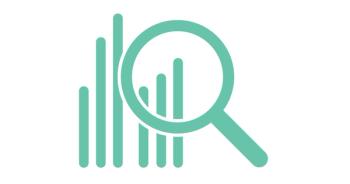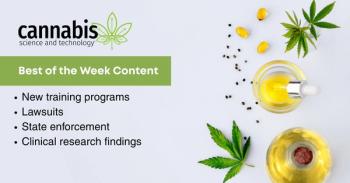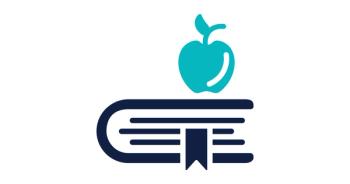
Cannabis Science and Technology
- January/February 2024
- Volume 7
- Issue 1
- Pages: 20-25
Advocacy for the Harmonization of Cannabis Industry Regulation: Role and Guidance from the American Council of Independent Laboratories (ACIL) in Cannabis Policy

A look at the advocacy and guidance conducted by the ACIL within the cannabis industry.
In the last ten years, organizations worldwide have made it part of their mission to create methodologies and standards for the cannabis industry. Each organization has its role in helping the industry to advance the science and increase the methods to aid in cannabis testing and safety. ACIL, or the American Council of Independent Laboratories, founded in 1937, is a trade association representing independent, commercial scientific, and testing laboratories. Their mission is to provide education and advocacy to their member industries and laboratories to address environmental and product risks to the public. Their vision is realizing a healthy, safe environment for society through the application of unbiased, scientific testing. In this column, we will discuss the involvement of ACIL with the cannabis industry and highlight the advocacy and guidance work the group is accomplishing on behalf of the cannabis community, especially regarding a newly published guidance document for cannabis laboratories and testing.
Prior to the start of the 20th century, cannabis was an important economical and practical commodity in the United States (US). In the 1600s, colonial Americans were required to cultivate cannabis crops for use in a wide variety of products from paper and fabric to medicinal preparations. By the 1800s, cannabis was a widely recognized medicinal plant with many preparations recognized by world pharmacopeias. During the 19th century and the early 20th century, cannabis rose to widespread use but also became the object of restriction around the world.Only within the last century cannabis was consigned to the likes of illicit substances in the US and around the world.
In 1906, the US Pure Food and Drug Act required labeling products that contained psychogenic substances such as cannabis and alcohol. The 1914 Harrison Act (US) made the use of cannabis criminal. In 1937, the US Marijuana Tax Act criminalized all cannabis. This was coincidentally the same year an organization was founded to advocate for public safety by American laboratories called the American Council of Commercial Laboratories, which was later incorporated in New York State as the American Council of Independent Laboratories (ACIL).
Despite its illegal status, the research into cannabis in the last few decades has continued and expanded. Now in the 21st century, regulatory agencies have begun to introduce (or restore) cannabis into their compendium of regulated legal products. Organizations like ACIL and many others have taken the lead in not only guiding the cannabis industry and regulatory bodies but providing the scientific frameworks to help hone data-driven methods to protect and promote consumer health and safety. As we head into 2024, we can look back on the last decades and see the progress the cannabis industry has made over the years its reemergence into the wider public consciousness in the late 1990s and early 2000s.
ACIL in Action
ACIL is a leader in crafting the scientific foundations or benchmarks that define accurate science for laboratories with their advocacy and guidance documents. Now in its 87th year, ACIL continues to operate as the nation’s oldest and most recognized trade association representing independent laboratories. These laboratories represent a wide array of scientific disciplines that engage in testing, product certification, consulting, and research. The organization’s vision and mission are to “realize a healthy safe environment for society through the application of unbiased, scientific testing” by “providing the independent testing community with advocacy, education, and alliances to enable members to better address environmental and product risks to the public,” (1). The organization is based on three core values: 1) ethical, objective, and quality business practices, 2) community and collaboration, and 3) anticipate trends and provide leadership under a code of ethics that builds on advocacy, education, and alliances (see Figure 1).
ACIL builds upon the principles of alliances, education, and advocacy in practical ways. They bring together a variety of professionals in the laboratory industry to collaborate toward creating opportunities and content, as well as promote advocacy of the industries to the policymakers to enact change to benefit public health and safety. The laboratories and organizations represented in ACIL cover the gambit of testing types and services and concentrate under four primary organizational sections including: Environmental Sciences, Conformity Assessment, Construction Materials Engineering & Testing (CMET) and Food Sciences (which includes the Cannabis Working Group).
ACIL and Cannabis
The Cannabis Working Group (CWG) started as a directive from ACIL’s board of directors to explore the cannabis testing industry to establish whether ACIL could take a hand in helping cannabis laboratories by allowing for alliances, education, and advocacy.
As related by Joseph Konschnik (formerly of Restek, and a founding member and advisor to the working group), “…in 2016, the Board of Directors (BOD) of ACIL at the time, decided to explore the cannabis testing industry to evaluate whether or not ACIL could be a resource in helping cannabis testing labs to grow and thrive in a somewhat confusing regulatory climate. The BOD delegated this task to the Food Sciences Section and with the assistance of ILI (Independent Laboratories Institute) formulated a strategy to engage with both ACIL member labs who were already testing cannabis in their state, and non-ACIL member labs to learn more about their specific needs and priorities.”
Following that initial directive, the ACIL invited small number of cannabis testing laboratories to their 2017 annual meeting in Portland, Oregon, to learn about the cannabis industry and determine if ACIL should take a more active role in this new laboratory space. Many attending the meeting felt that ACIL could be an advocate for the needs of the cannabis laboratory community.
“…Other trade groups [advocate] for cannabis businesses in general, they have little bandwidth or desire to spend their political capital advocating for the needs of analytical laboratories,” Zachary Eisenberg, VP/COO of Anresco Laboratories—a food and cannabis testing laboratory based in San Francisco said. “Labs are just too small in number and in size to warrant their attention. Also, their interests can sometimes differ from others in the cannabis supply chain. ACIL is the only established national organization specifically advocating on behalf of private laboratories, so the fit is intuitive.”
Joseph Konschnik, CWG advisor added, “Other trade associations were focused on the entire industry’s needs which at the time were banking, taxation, product quality, labeling, in addition to testing, but very few were focused only on testing. Organizations at the time pursuing regulatory control over testing published guidance documents which were written by attorneys, or non-laboratory professionals. ACIL was the only organization at the time which was equipped to address exclusively the needs of testing labs from the perspective and based on the experience of independent testing labs. ACIL’s approach was to offer the best science-based guidance based on its 80 years of experience and success advocating for US testing labs’ interests to both federal and state government agencies and legislative communities.”
The meeting generated a lot of information which clearly showed that cannabis laboratories could indeed fit well into the framework of ACIL and needed the advocacy, education and alliances that could be established through ACIL.
“We had a brainstorming session and opened a dialogue and asked the labs to tell us what they needed,” Konschnik commented. “As you can imagine it was a pretty engaged and active meeting where we filled up about 10 or 12 pages on the wall that day with needs that the industry had. We reported back and the board decided to take it to the next level.”
In early 2018, the Cannabis Working Group (CWG) was formed under the leadership of the Food Sciences Section (FSS) of ACIL. Very quickly, the group began to see a large task list that could be tackled by the organization, but the most important task was to try and harmonize all the information being provided by various outside organizations to the cannabis laboratories and apply practical and achievable guidelines to the different laboratory processes.
“At the following Spring meeting the Cannabis Working Group was approved to be formed to narrow down that list of things to one thing since ACIL is a small organization,” Konschnik mentioned. “We figured we could do one thing, so what was the one thing we could do from this list of many needs? We identified that the labs felt their biggest need was harmonization of testing procedures and accreditation throughout the industry.”
The very first goal of this newly formed committee was to establish its goals and then harmonize all the advice, regulations, methodologies, and information being given to the cannabis laboratories into one place and then apply realistic and achievable scientific benchmarks to these procedures. Up to this point many of the regulations and methods were based on advice from assessors and lawyers and not necessarily guided by laboratory scientists. Throughout 2018 and 2019, the committee drafted its proposed recommendations which eventually were published as the ACIL Cannabis Testing Recommendations Document (2).
The core of the document lies around five of ACIL’s recommendations for best practices that include:
- Require national accreditation of laboratories testing cannabis based on internationally recognized consensus standards of laboratory practice, as assessed by non-governmental accrediting bodies.
- Develop a regulatory framework (in cooperation with regulating agencies) to allow transportation of small quantities of cannabis and/or tetrahydrocannabinol (THC) containing products to be shipped across US state lines
for reference standards, testing purposes and public health studies. - Collaborate with agencies responsible for product safety, efficacy, and inspection to develop standards and protocols for the entire cannabis testing workflow from sampling, handling, and inspecting to testing cannabis products for human and veterinary uses.
- Expand testing allowances to accredited cannabis testing laboratories to accept samples and perform other types of testing such as food safety, product safety, and pharmaceutical environmental to support product development, safe/responsible uses, and health outcomes.
- Ensure that sampling and testing for regulatory purposes is independent, representative, and consistent with scientific best practices established through consensus standards generated by professional scientific organizations.
Using the guiding principles of their recommendation document, the CWG then set out to tackle these issues starting with national accreditation of cannabis laboratories. Cannabis laboratories wanted to be part of a national accreditation program that could be recognized throughout the US so that if a laboratory expanded into another state their accreditation process and standards would still be applicable. The CWG consulted a wide variety of outside accreditation bodies and consensus standards organizations to gather support and guidance to create a national accreditation scheme for the cannabis laboratory industry.
ACIL’s CWG had believed they had found their first goal in drafting a nationally harmonized accreditation scheme and program. During the final stages of the document in 2020 and 2021, the group was hit with multiple hurdles including the COVID-19 pandemic and pushback from other organizations that felt they already had produced viable accreditation documents. The group had to reevaluate their priorities in a COVID reduced world and do some self-evaluation to see if what were proposed in the accreditation scheme and program could be best accomplished by ACIL or by other organizations. Despite all the effort of the CWG on their document and the fact that ACIL had set up accreditation programs for other laboratories (which are still currently a part of ACIL’s scope), the committee felt that the cannabis laboratory industry would be better served by collaborating with AOAC International in their efforts to implement a cannabis addendum to their already established laboratory accreditation programs rather than try to establish, maintain, and govern their own program.
The community engaged by ACIL is very connected and fosters affiliations, relationships, and collaborations between the different advisory, regulatory, and standards organizations. To be transparent, most ACIL members (myself and others quoted in this article) participate in, are members of, and hold leadership roles in many, if not all, the important laboratory and scientific organizations including ASTM International, AOAC, AOAC Cannabis Advisory Science Panel (CASP), Cannabis Regulators Association (CANNRA), and United States Pharmacopeia (USP). It is often through these connections and partnerships that education and harmonization can fully be promoted and supported.
Once ACIL decided that the accreditation program would not be able to be fully managed within the organization, members collaborated with other organizations like AOAC and AOAC Accreditation Guidelines for Laboratories (ALACC) to offer the work they had completed to be incorporated into the larger AOAC efforts. These collaborations move in all directions as ACIL members have been asked to present their documents and guidance to contribute to the working groups of these other organizations in return thus building on the principles of promoting good science and public health through affiliation and education.
Education and the CWG
The CWG turned their attentions to the next need of the cannabis laboratories—education and harmonization. The focus of the group moved from accreditation towards producing a harmonization document that could be used as a tool to message and guide regulators and legislatures. Unlike other similar cannabis laboratory documents produced by other organizations, the purpose of the document would be harmonize and synthesize the existing advice and regulations into a scientifically approachable source of information. The content would be created by actual cannabis industry scientists, consultants, and regulators rather than the lawyers and officials.
“It is the labs that participated and the people who live and breathe the cannabis industry…we looked at what is doable,” Josh Swider, Co-Founder/CEO Infinite Chemical Analysis Labs and co-chair for ACIL’s CWG said. “The labs that wrote this (guide) asked what is realistic…what can people actually achieve in a reasonable amount in scientific possibilities… What can we really do and achieve as ACIL? What can other labs achieve too? What should be expected from (a lab) by a regulator?”
The purpose of the CWG was redirected into producing a guidance document based on science that was achievable and valid rather than just a synthesis of the regulations and methodologies dictated by states and organizations. In turn, then the purpose of the ACIL document would be to educate those legal and regulatory bodies in the state of the science to create or amend methods and regulations to real world, scientifically based metrics.
“[The guidance document is] science based; designed to offer the best possible science-based guidance to the regulatory and legislative communities,” Konschnik stated.
The first draft of the harmonization guide was produced between 2020 and 2021. Initial reviews by outside organizations and some state cannabis programs liked the initial content of about 10 pages but felt a lot more detail was needed. Feedback indicated that there was a need for detail on each type of testing, scope by scope (microbiology, cannabinoids, moisture, pesticides, etc.). The CWG went back to the drawing board and detailed appendices were created.
By the end of 2022, ACIL’s “Guide to Harmonizing Cannabis Laboratory Quality and Testing Practices” was ready for final comments and review (3). It contains science-based guidance and best practices for laboratory testing of cannabis and hemp plants, extracts, and finished products.
The 49-page guide contains 18 sections of guidance for laboratory quality management systems (QMS) (consistent with ISO/IEC Guide 17025) and additional guidance specific to testing cannabis in the US. These sections include best practices for all aspects required for a QMS; and eight additional appendices (over 30 pages) covering cannabis methods, acceptance criteria, and achievable targets (see Table I).
The guide is intended as a tool to educate and influence state and federal regulatory agencies, legislatures, and staff as to the realizable targets for cannabis testing. It is also intended for use by laboratories, consensus standards development organizations, and accreditation bodies. It is ACIL’s hope that the document can be used by policymakers to harmonize testing requirements among the states. The guide has been shared with other organizations engaged in cannabis policy in hopes of being included in their decision processes as well.
As the guide’s introduction states:“ [The guide] was developed to recommend guidance for a consistent and science-based approach to regulatory processes by describing basic quality assurance requirements for the laboratories testing marijuana and/or hemp plant materials and their derivatives across the nation. The document was developed with the aid of industry experts and stakeholders including laboratories, accreditation bodies, and input from state regulatory bodies. The document is meant to be a living resource to support the growing cannabis and hemp industries and encourage a level playing field with regard to quality management systems, technical quality control, and method requirements for testing laboratories.”
The ultimate goals for ACIL’s CWG committee and their guidance document are three-fold: a national harmonized regulatory program for hemp and cannabis in the US; the adoption of regulations and laws in cannabis that employ guidance from science-based advisors to adopt policy based on good science; and finally, once such laws are passed, have the guidance adopted by regulatory bodies based on these scientific recommendations.
ACIL and Advocacy
The guidance document immediately became a method of communicating to regulators, legislators, and staff, the importance of cannabis testing with realizable targets for public health and safety. ACIL staff, including ACIL’s Government Relations Director, Michael Oscar, lobbied tirelessly to ensure the organization’s message of advocacy did not remain unheard by the governing bodies. “[ACIL’s] role in federal advocacy is to educate, advocate, and legislate on behalf of ACIL and the commercial independent laboratory community as it relates to public health and safety; especially as it relates to cannabis,” Michael Oscar said.
The guidance document was widely distributed to federal and state government officials to educate and advocate for the cannabis industries push to ensure public health. Zachary Eisenberg, co-chair of the CWG, feels that there is a gap in knowledge at the state and federal levels which ACIL’s guide could fill by addressing the unique quality and safety issues of cannabis products. That lack of knowledge further extends to how to properly regulate the laboratories that test cannabis and hemp. Eisenberg mentioned, “That is a major problem for this industry, as without reasonable and enforceable regulation, there can be perverse economic incentives for laboratories to inflate results and/or pass failing products. ACIL’s role, as it relates to cannabis, is to provide objective and science-based information and guidance to regulators, consensus organizations, private laboratories, and the industry as a whole so they can implement fair and meaningful standards and analytical requirements that protect public health and safety.”
ACIL members believe that the organization, due to its smaller size and dedication to education and advocacy, can respond more quickly to changes in the laboratory industry especially the cannabis market. As changes occur, documents like the “Guide to Harmonizing Cannabis Laboratory Quality and Testing Practices” can be quickly updated.
“Having a group like ACIL means we can use this as a starting point,” Josh Swider explained. “We can add and modify our documents a lot more quickly than other organizations. We can be a lot nimbler at this kind of thing. The labs are seeing challenges day to day; we can predict what is happening.”
As problems develop or legislation changes, ACIL can quickly become involved to help write position papers, or lobby for changes.
“When the United States Department of Agriculture (USDA) issued their Hemp Interim Final Rule, ACIL immediately scheduled a meeting with key decision makers at the agency to relay our thoughts and concerns,” Eisenberg said. “The USDA then modified their proposed rules less than a week later, in line with our recommendations. That is the value of ACIL—it has access to and the respect of federal agencies and regulators.”
To further the education regarding cannabis and hemp after the 2018 Farm bill, ACIL’s Independent Laboratories Institute (ILI), a non-profit, 501(c)(3), scientific educational organization established in 1992, composed a position paper discussing the deficiencies of hemp testing to explain the laboratories’ position on testing (4). The institute explained that the gaps were created in the 2018 Farm Bill by their lack of education regarding hemp and cannabis from a scientific and testing point of reference.
Overall, the efforts of ACIL’s advocacy for cannabis testing has aided the industry and public health and will continue to do so in the future. Mike Oscar stated, “[ACIL has] supported medical marijuana research legislation that has become federal law, and we are currently working with the House and Senate Agriculture Committee Staff as they continue to draft the 2024 Farm Bill regarding hemp. We will continue to monitor the SAFER Act as it matriculates through the Senate and the House in 2024.”
Acknowledgements
I would like to acknowledge and thank all the individuals who contribute their knowledge, expertise, time, and efforts in aid of not only the organizations that support the cannabis scientific community and the laboratory and scientific communities overall including:
Joseph Konschnik, now an independent consultant representing Restek Corporation, an ACIL Associate member, and advisor to the Cannabis Working Group; Zachary Eisenberg, VP/COO of Anresco Laboratories and co-chair of the ACIL CWG; Josh Swider, Co-Founder/CEO Infinite Chemical Analysis Labs and co-chair for ACIL’s CWG; Michael Oscar, ACIL’s Government Relations Director; in addition to many other ACIL members, CWG members, and ACIL staff. Thank you all for your help and efforts.
If anyone would like more information regarding the work being done by ACIL or the CWG, we invite you to visit the ACIL website at www.acil.org or contact any of the contributors who generously gave of their time both within ACIL and for this column. All the documents highlighted can be downloaded for free from the ACIL website. For more information, contact Shannon Oscar at
Further Reading
www.acil.org .www.acil.org/resource/resmgr/cannabis/acil_cannabis_testing_recomm.pdf .www.acil.org/resource/resmgr/press-releases/Deficiencies_in_Hemp_Testing.pdf .www.acil.org/resource/resmgr/cannabis/2023-1-Guide-to-Harmonizing-.pdf .
About the Columnist
Patricia Atkins is a Senior Applications Scientist with Spex, an Antylia Scientific company and has been a member of many cannabis advisory committees and working groups for cannabis including NACRW, AOAC, and ASTM.
How to Cite This Article
Atkins, P., Advocacy for the Harmonization of Cannabis Industry Regulation: Role and Guidance from the American Council of Independent Laboratories (ACIL) in Cannabis Policy, Cannabis Science and Technology, 2024, 7(1), 20-25.
Articles in this issue
almost 2 years ago
Automation and All-In-One Systemsalmost 2 years ago
Let’s Talk About It: Cannabis Remediationalmost 2 years ago
Considerations for Formulating Extracts with TerpenesNewsletter
Unlock the latest breakthroughs in cannabis science—subscribe now to get expert insights, research, and industry updates delivered to your inbox.



